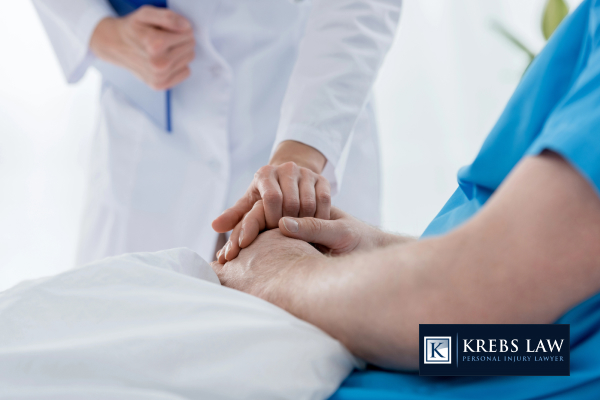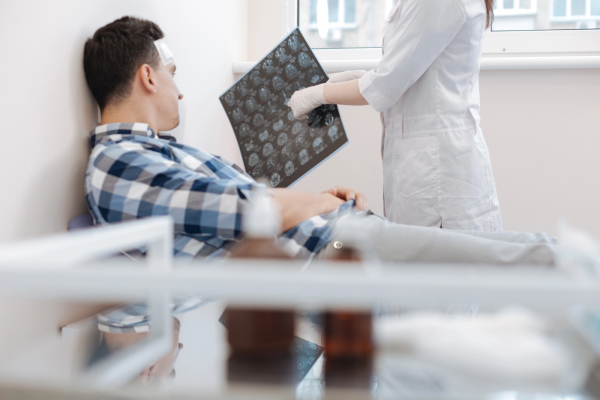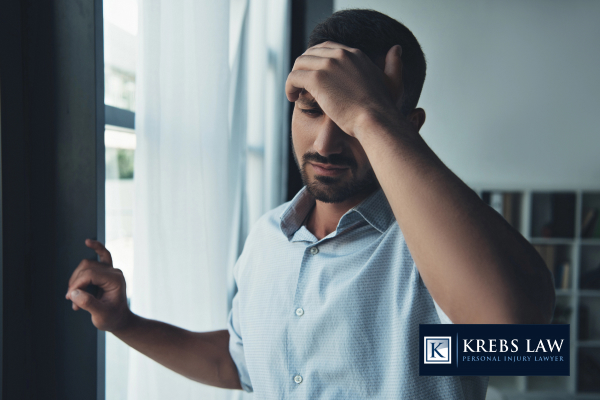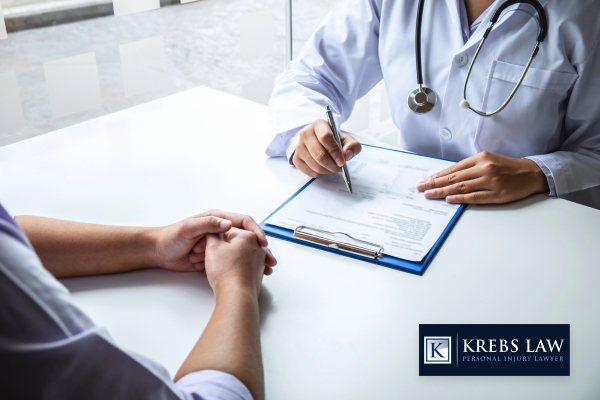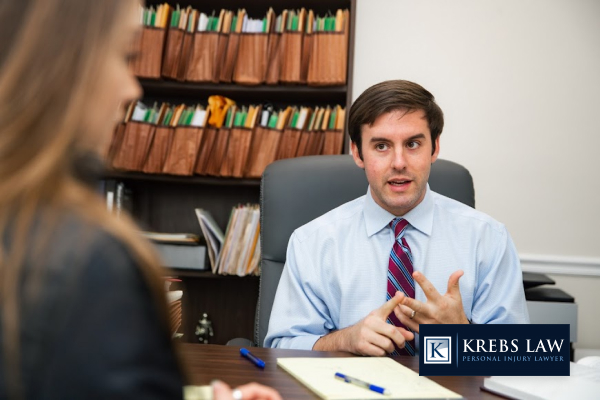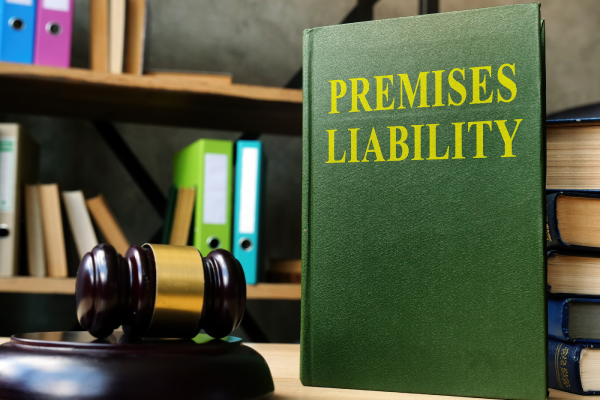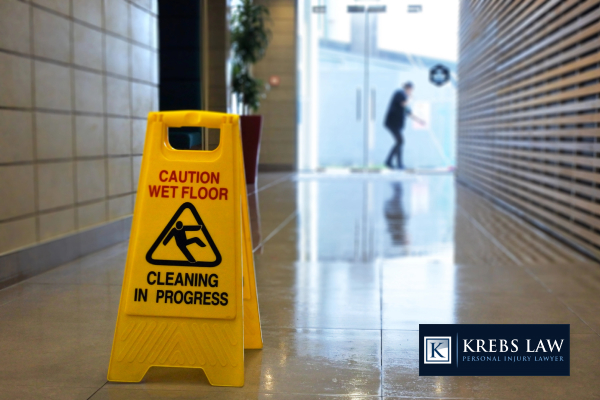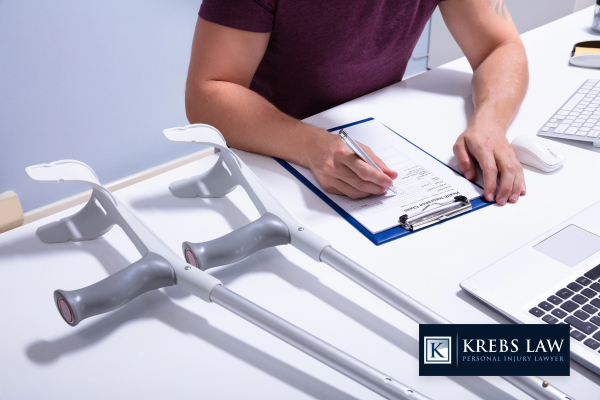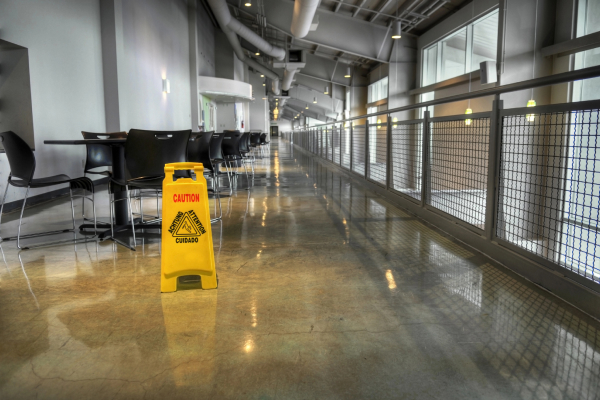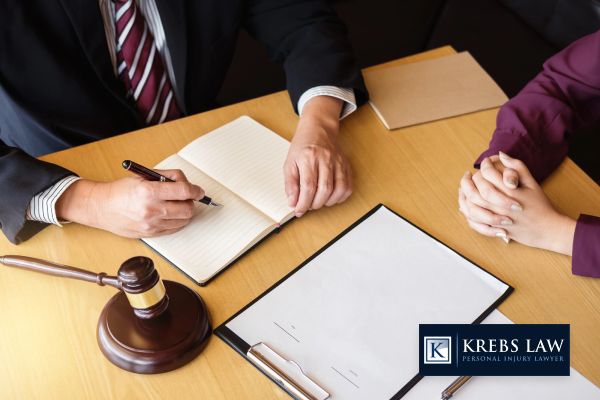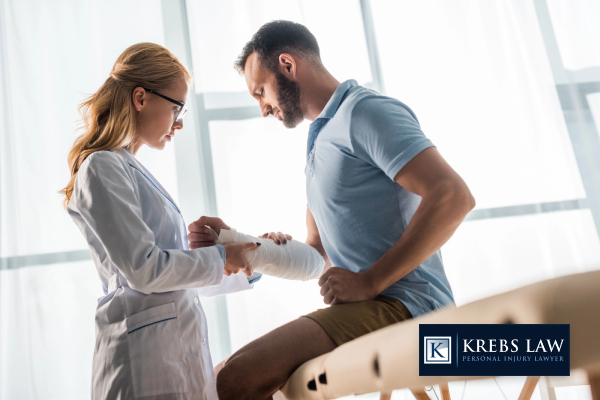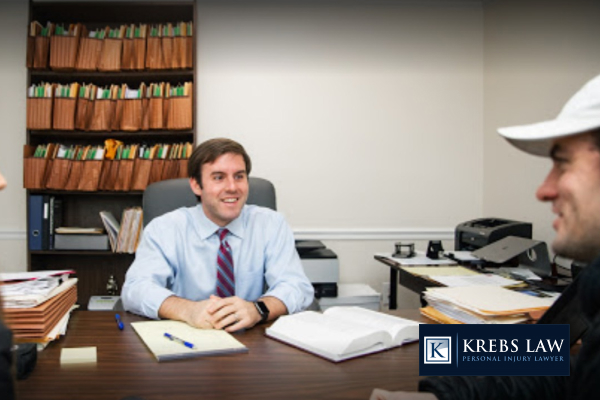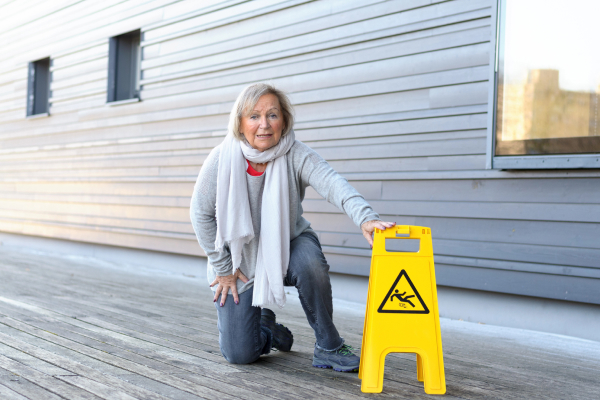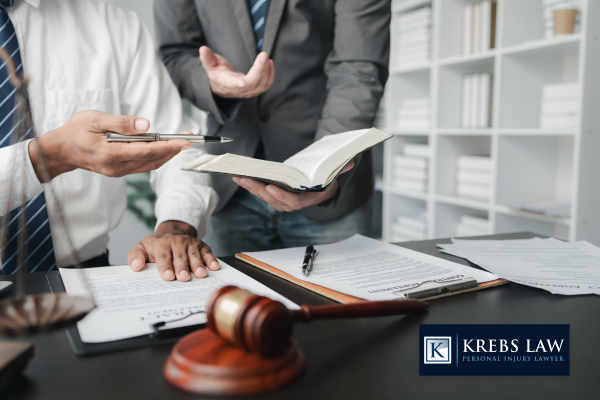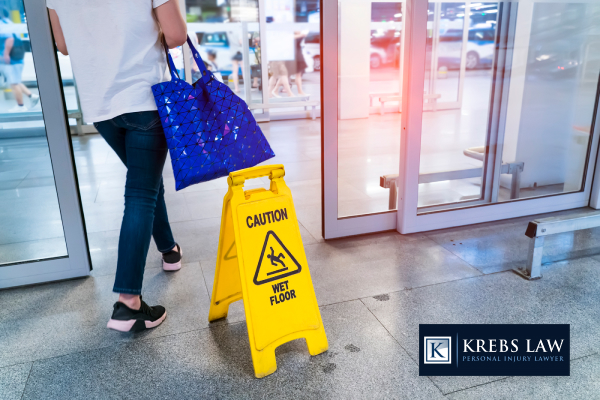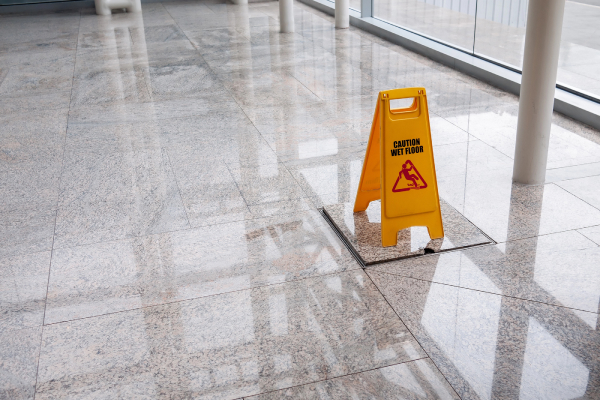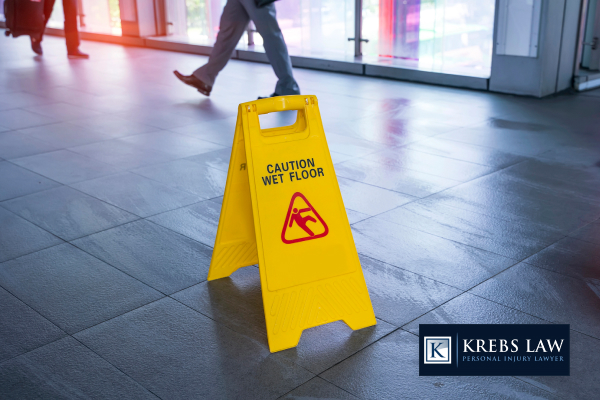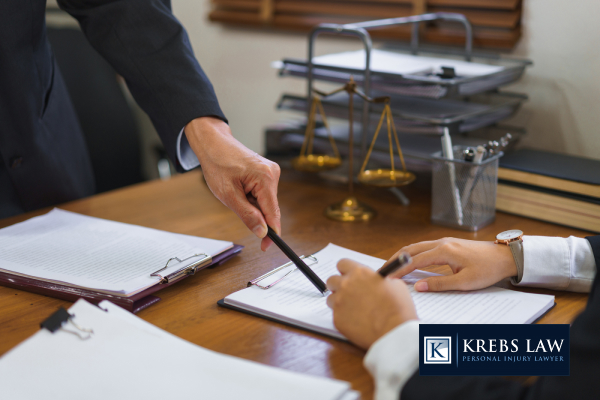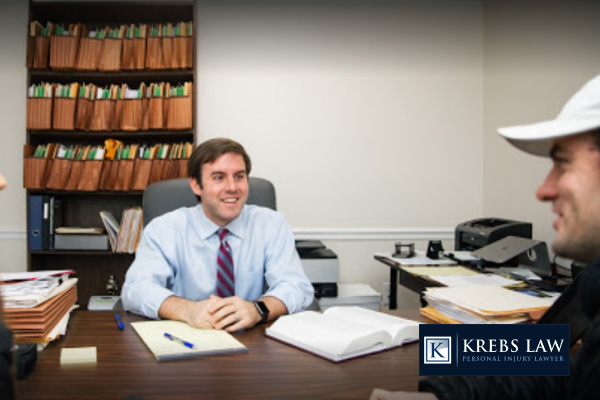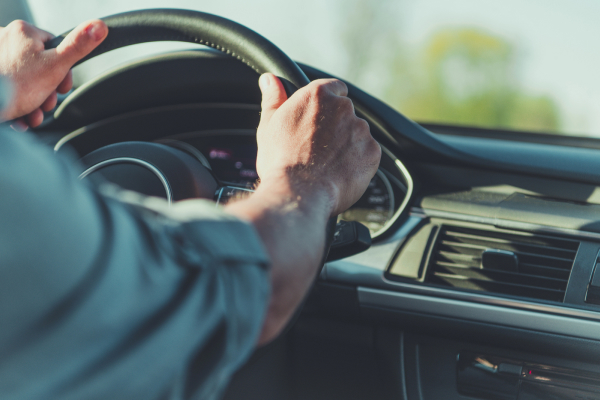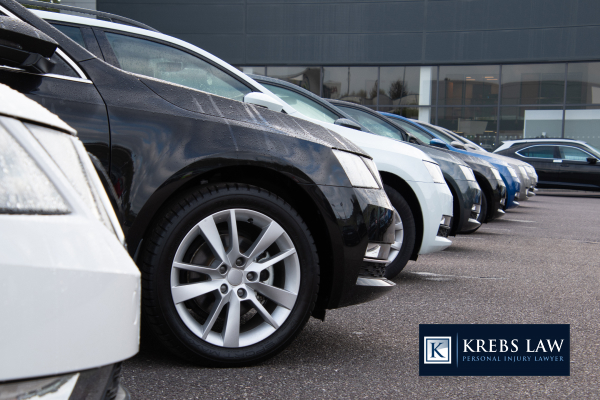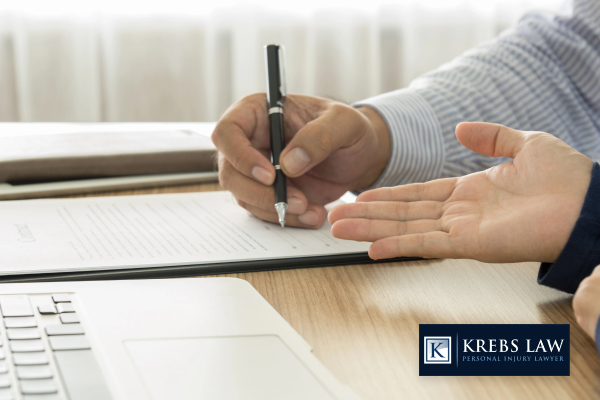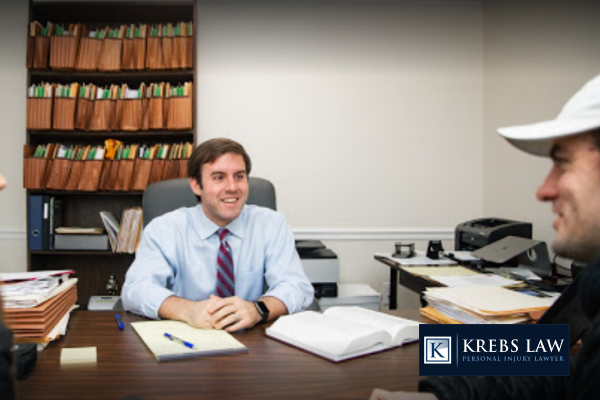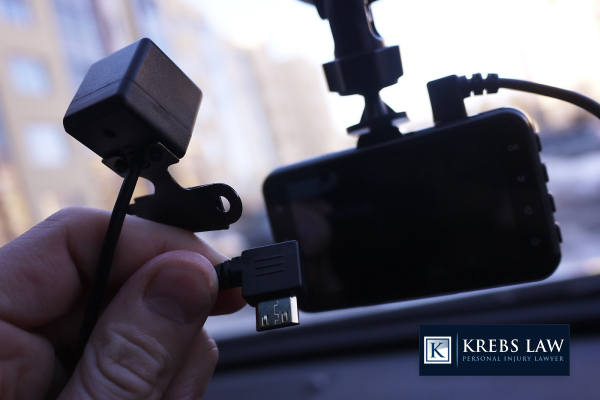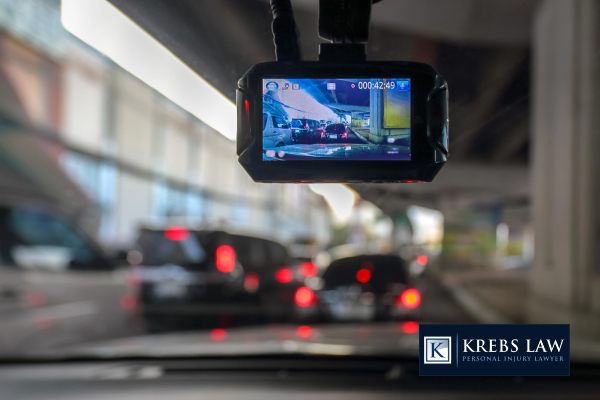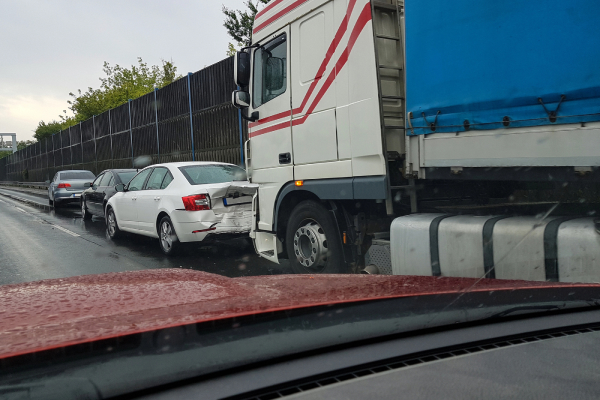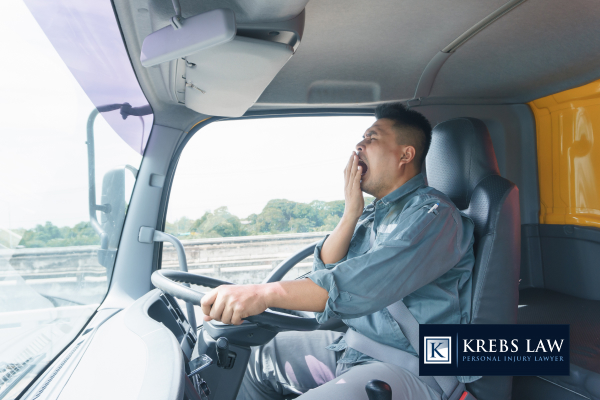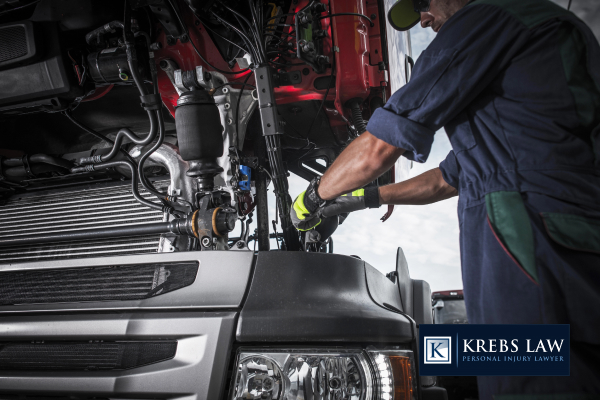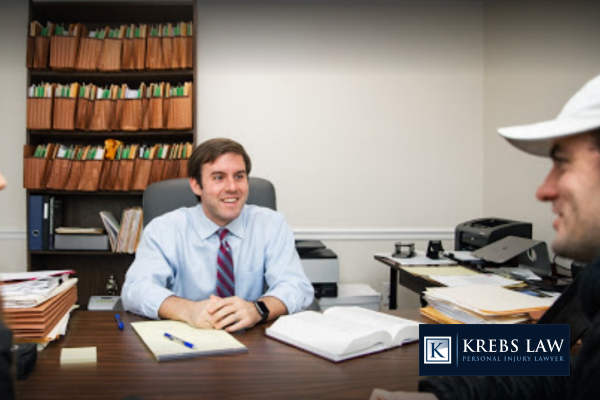Truck Accidents and Insurance Company Offers
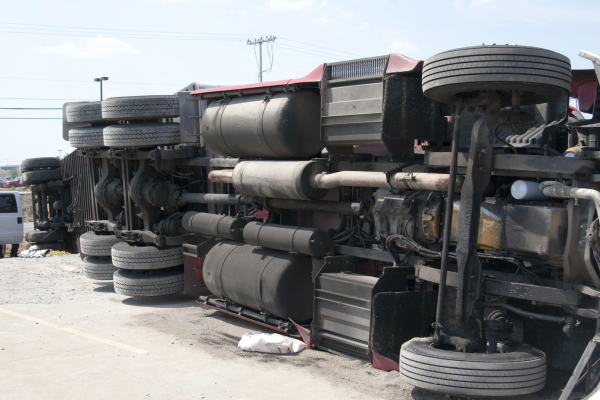
Truck accidents often cause major damage. Victims may suffer from serious injuries, lost income, and high medical bills. These claims are never simple. Unlike a regular crash, a truck accident can involve many people and companies.
At Krebs Personal Injury Lawyers, we help truck accident victims deal with these challenges. Insurance companies don’t make it easy. They move fast to protect their own profits, not your recovery. They may call right away with a quick offer that sounds helpful, but it’s usually far too low.
We’ve seen how hard it is for an accident victim to fight back alone. That’s why we take on the insurance company for you. We look at every detail, every cost, and every long-term effect. Our goal is to help you understand your rights and get the fair compensation you truly deserve.
Why Truck Accident Claims Are Different
Claims involving truck crashes are more complicated than regular car accidents. There are more rules, more damage, and more people involved.
Some of the key reasons truck accident cases stand out include:
Severity of Injuries and Property Damage
Truck accidents often lead to severe injuries. The size and weight of trucks cause more harm than a standard car crash. Victims may suffer broken bones, brain injuries, or spinal damage. Some face long-term disability or chronic pain. The property damage is also worse. A fully loaded truck can crush a smaller vehicle in seconds. These crashes may total your car or even lead to loss of life.
That’s why truck accident cases usually involve higher payouts. The insurance company knows this and tries to settle quickly. Krebs Personal Injury Lawyers understands the real costs of these injuries. We fight to make sure you receive full compensation, not just for today, but for your future too.
Involvement of Commercial Policies With Higher Limits
Most trucking companies carry commercial insurance policies. These are different from personal auto policies. They usually have higher coverage limits, often in the millions. That’s because truck accident victims often face more damage and higher medical expenses.
But higher limits don’t mean insurers pay fairly. The insurance company will still try to offer the lowest possible amount. They train their team to protect their money, not your recovery.
At Krebs Personal Injury Lawyers, we deal with these commercial carriers often. We understand how they work. We know how to respond and push for a fair settlement. You shouldn’t have to settle for less just because they want to close the case quickly.
Multiple Liable Parties
Truck accidents often involve more than just the driver. The trucking company, maintenance crews, cargo loaders, or even parts manufacturers may share blame. Proving who is responsible takes time and detailed investigation.
In some cases, the truck driver works for one company, while the vehicle is owned by another. That creates confusion about who pays for what. Without a lawyer, an accident victim might not know where to start.
At Krebs Personal Injury Lawyers, we identify all liable parties. We look at work contracts, maintenance records, and hiring practices. Holding every party accountable helps you pursue compensation that truly covers your losses.
Complex Federal and State Regulations
The trucking industry is heavily regulated. Drivers must follow both federal and state laws. These rules cover hours on the road, cargo weight, inspection checks, and more.
If the truck driver or trucking company breaks these rules, they can be held liable. But proving these violations takes experience. You need someone who understands the law and knows how to gather evidence.
We know these laws well at Krebs Personal Injury Lawyers. Our team reviews driver logs, black box data, and safety records. If the company broke the law, we’ll use that to build a stronger case. This helps you get the fair compensation you deserve.
How Insurance Companies Handle Truck Accident Claims
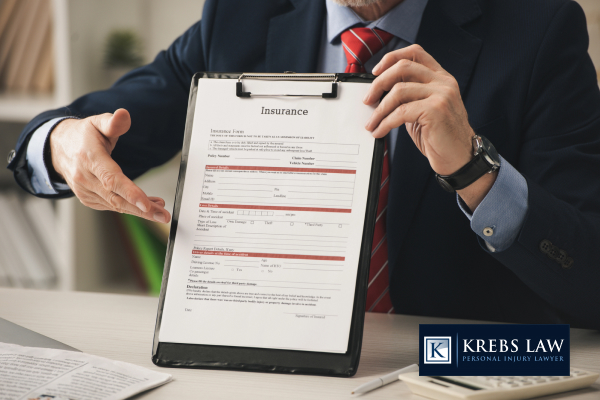
Truck accident claims are handled differently than typical car crashes. The insurance company has a lot on the line, so they act fast. Here's what you need to know about their common strategies.
Quick Contact to Minimize Payout
After a truck accident, the insurance company often calls the victim within days. They want to settle the claim fast, before you understand the full extent of your injuries or losses.
They may offer a cash payment and say it’s the best you can get. But this early contact is about saving their money, not helping your recovery.
At Krebs Personal Injury Lawyers, we’ve seen this happen many times. Victims sign away their rights without knowing what their case is worth. Don’t let that happen to you. Always speak with a truck accident lawyer first.
Use of Adjusters Trained to Protect the Insurer’s Interests
Insurance adjusters are not on your side. They are trained to lower the value of your claim. Their job is to protect the insurance company and keep payouts small.
They may sound helpful on the phone, but everything you say can be used against you. They’ll look for ways to blame you or limit how much they have to pay. That’s why legal representation matters.
Investigating You and Your Claim
The insurance company doesn’t just investigate the crash. They may investigate you too. They’ll look into your background, social media, and even past injuries. Their goal is to reduce your payout—or deny it completely.
They may question your medical treatment, downplay your pain, or say your injuries weren’t caused by the accident. This happens even in clear-cut truck accident cases.
Offering Fast Settlements Before Full Damages Are Known
Insurers often push settlement offers right after a crash. These offers come before you’ve seen all the bills or finished your recovery. They hope you’ll accept before knowing the true cost of your medical treatment, lost income, or future care.
This is especially dangerous in truck accident cases, where injuries are serious and long-term. Once you sign, you can’t go back even if new problems appear later. At Krebs Personal Injury Lawyers, we make sure you understand every part of your damages. We’ll never let you accept a low insurance company’s settlement offer.
Why Initial Settlement Offers Are Often Too Low
Initial settlement offers may sound helpful, but they rarely match the true value of your claim. They are designed to save the insurance company money, not protect your long-term well-being.
Here are four reasons why these offers fall short:
Designed to Close the Case Quickly
The first offer from the insurance company is meant to close the case fast. The sooner they settle, the less they pay. They don’t want time for more medical bills to arrive or for you to speak to a truck accident attorney.
Once you accept, your claim ends. Even if your injuries get worse, you can't ask for more. This is why acting quickly without legal advice can cost you.
May Not Account for Long-Term Medical Costs
Serious injuries often require ongoing treatment. This includes follow-up visits, therapy, surgery, and medication. The first insurance settlement offer usually ignores these future costs.
If your injuries require years of care, you may be left paying out of pocket. This is especially true in truck accident cases, where injuries can take time to show their full impact.
Overlook Future Lost Wages or Reduced Earning Ability
If you can’t work after the crash, or if you return to work but earn less, those losses should be included in your claim. The insurance company's first offer may only cover short-term time off.
It likely won’t factor in a lower-paying job, a disability, or reduced hours. These long-term losses can add up and affect your financial future.
Ignores Pain, Suffering, and Emotional Trauma
The physical pain is one thing. But truck crashes often cause mental and emotional harm too. This includes anxiety, PTSD, or depression. None of this is easy to measure, which is why the insurance company may leave it out completely.
You’re not just owed money for bills. You deserve compensation for everything you’ve been through -- physically and emotionally.
What to Do If You Receive an Offer From the Insurance Company

If you get an offer after a truck accident, pause before you respond. What you do next can affect your entire claim. Here are the steps you should take:
Don’t Sign Anything Without Legal Advice
The insurance company may ask you to sign papers quickly. They might say it’s the only way to get payment. But signing too early could cost you the right to more money later. Once you agree, you can’t go back, even if your injuries get worse. Always have an experienced attorney review anything before you sign.
Review the Full Value of Your Damages
Before accepting any settlement offers, know what your injuries are really worth. This means reviewing medical bills, future care, missed work, and emotional suffering. Many truck accident victims accept too little because they don’t know the full cost of their losses. Take time to understand everything, not just what’s on the surface.
Consult a Truck Accident Lawyer Before Responding
An insurance company has its own team protecting its interests. You deserve someone on your side, too. A truck accident lawyer can review your offer and explain whether it’s fair or not. They know how to spot red flags, handle talks with insurance adjusters, and push for better terms. This protects your rights and improves your chance of a fair settlement.
Know That You’re Not Required to Accept the First Offer
There’s no rule saying you must accept the first offer. You can reject it, ask for more, or take legal action if needed. This is your case, and you control the outcome. Many personal injury claims are worth far more than the initial offer. Don’t feel pressured. Take the time to demand the full amount you deserve.
FAQs
Do I have to accept the insurance company's first offer?
No. You are not required to accept any offer. In fact, most first offers are too low. They often don’t cover long-term costs like future medical expenses. It’s best to review the offer with a personal injury attorney before making any decision.
Can I still file a claim if I started treatment weeks after the accident?
Yes. It’s common for symptoms to appear days or even weeks later. Delayed treatment won’t stop you from filing a personal injury lawsuit, but it may make the case more complex. A lawyer can help you explain the delay and protect your rights.
How long do I have to take legal action after a truck accident?
In Alabama, you generally have two years from the date of the accident to file a personal injury lawsuit. Waiting too long can limit your chances of financial recovery. It's smart to speak with a lawyer as soon as possible.
What damages can I recover after a truck accident?
You may recover compensation for medical bills, lost income, future medical expenses, pain and suffering, and more. Every case is different. A qualified personal injury attorney can help you calculate the full value of your claim.
Is hiring a personal injury attorney expensive?
No. Most personal injury attorneys work on a contingency fee. That means you pay nothing upfront. They only get paid if you win your case or reach a settlement. This allows you to focus on healing while they fight for your financial recovery.
Contact Our Accident Lawyer Today
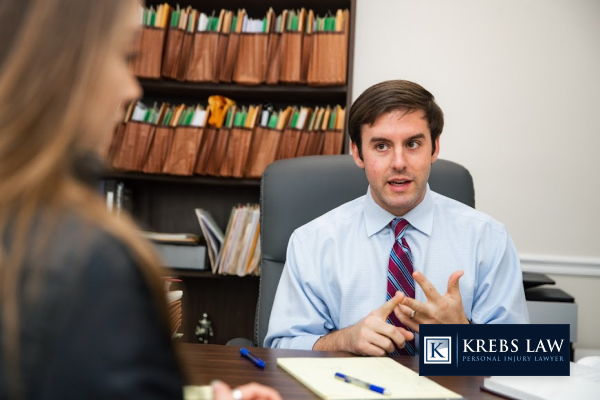
If you’ve been hurt in a truck accident, don’t face the insurance company alone. You deserve answers, support, and fair treatment. Our team understands what accident victims go through. The pain, stress, and bills can be overwhelming. You might be wondering what to do next or how to protect your rights. That’s where we come in.
At Krebs Personal Injury Lawyers, we offer a free consultation to discuss your case. There’s no pressure and no upfront fees. Just honest guidance from people who know how to handle truck accident claims. Let us review your offer, explain your options, and help you move forward. You don’t have to settle for less. Contact us today to fight for the fair compensation you deserve.


